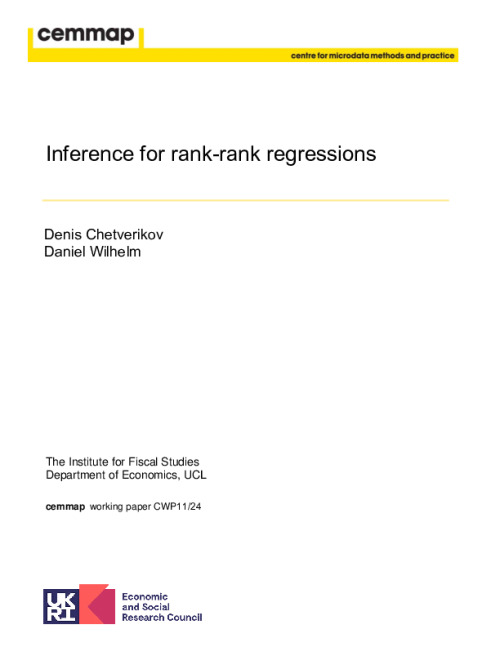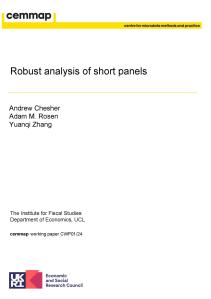Slope coefficients in rank-rank regressions are popular measures of intergenerational mobility. In this paper, we first point out two important properties of the OLS estimator in such regressions: commonly used variance estimators do not consistently estimate the asymptotic variance of the OLS estimator and, when the underlying distribution is not continuous, the OLS estimator may be highly sensitive to the way in which ties are handled. Motivated by these findings we derive the asymptotic theory for the OLS estimator in a general rank-rank regression specification without making assumptions about the continuity of the underlying distribution. We then extend the asymptotic theory to other regressions involving ranks that have been used in empirical work. Finally, we apply our new inference methods to three empirical studies. We find that the confidence intervals based on estimators of the correct variance may sometimes be substantially shorter and sometimes substantially longer than those based on commonly used variance estimators. The differences in confidence intervals concern economically meaningful values of mobility and thus may lead to different conclusions when comparing mobility across different regions or countries.










